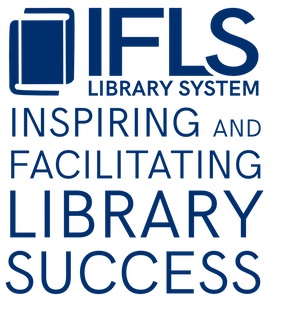There are a few library directors in our system that are authors, and one of them has gone the mainstream publishing route. Shelley Tougas, the director at Hudson, has written several fiction and nonfiction books for middle-graders and now her picture book debut, Mommy’s New Friend, is due out from Macmillan’s Roaring Brook Press on February 20! It has positive reviews from Kirkus and Publishers Weekly, and we thought it would be fun to find out a little bit more about Shelley, her writing, and how it fits in with her work as a librarian.
How do you find time for writing/editing/book creation?
I’m figuring that out. I wrote and sold Mommy’s New Friend in 2018 when I was part time at the library. In the pandemic’s early days, I became a co-interim director when ours resigned. Cue the chaos: the pandemic, the job’s learning curve, starting grad school, a divorce, moving (twice), my mom’s cancer diagnosis and subsequent death, my child’s chronic illness, the library’s long-term funding crisis, a storm that destroyed part of our building. Needless to say, no writing. Now I’m back at it, though, by following the schedule I set to manage all of the above. I get up at 4 a.m. most days. I don’t cook, golf, bowl, knit, bike, shop or go to the gym (although I should). I work, write and read.
Does your work in libraries inform your writing in any way, do you think? And if so, how?
Absolutely. When you do storytimes, you learn fast what kinds of picture books engage kids. You also see gaps in the marketplace, and you pay attention to the disconnect between what gatekeepers think kids should read and what kids actually want to read. You see which book covers kids walk right past and which covers makes them stop and look. If you ask kids for their opinions on books, get ready. They won’t hold back.
Does your insider understanding of the publishing industry inform your library work? How so?
I didn’t work in a library until 2016, and that’s when I really absorbed the connection. I don’t think librarians fully understand they are the lifeblood of children’s publishing. How do quiet books get noticed? Librarians. Who helps reluctant readers find “their” books? Librarians. Who helps parents understand early literacy? Who fights for children’s right to read? Who ensures all kids have access to books that reflect their life experiences? Librarians, librarians, librarians. We build the entrance ramps from the book world to our communities.
What is your favorite part of the writing process? Your most challenging?
I’d write dialogue exclusively if that’s all you needed for a book. I also love research. Not fun: the first big revision, the one that requires a chainsaw when you want to use a scalpel.
Why aren’t kids books given the attention they deserve by mainstream media or by ‘intellectual’ media?
The mainstream media built its arts-and-culture coverage on elitism. There’s erosion, though, thanks to sites like Goodreads and passionate bloggers. The Internet gave readers control of platforms and gave them a voice. When reviewers actually write about children’s literature, they usually focus on the most serious, the most highbrow. They assume if masses of kids enjoy something, it must be terrible. When I was little, I used to put crushed Doritos on bologna sandwiches, so maybe they’re not wrong.
